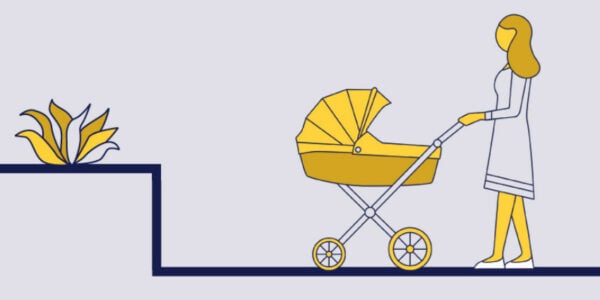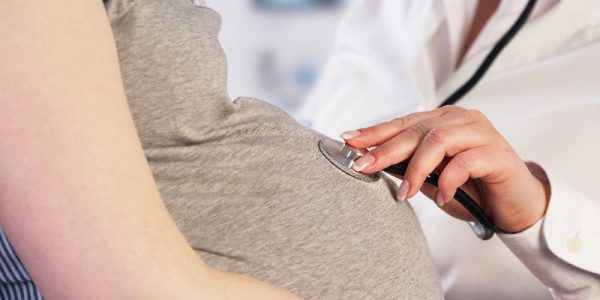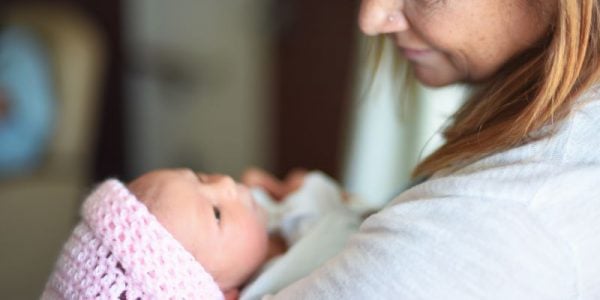Summary
This summary highlights the main findings of a report commissioned by Nuffield Family Justice Observatory and undertaken by the Family Justice Data Partnership—a collaboration between the University of Lancaster and the University of Swansea.
The rapid rise in the number of babies who have been taken into care in recent years has raised lots of questions, most importantly: what can be done to prevent such steps being necessary?
Building on insights from two earlier reports in the Born into Care series, this summary highlights the main findings of a research report that paints a picture of the health needs of both mothers and babies who come into care proceedings. In doing so, it helps us to better understand the kind of intensive early intervention that might be needed.
The report is the first of its kind to link family court records to maternal health data in Wales.
What are ‘care proceedings’?
Care proceedings are issued under Section 31 (s.31) of the Children Act 1989 and can lead to removal of a child from parents’ care on account of actual or likely significant harm.
Where did the data come from?
The study used anonymised administrative data from Cafcass Cymru combined with maternity and other health data using the highly secure systems for linkage and anonymisation established by the SAIL Databank (Ford et al. 2009; Lyons et al. 2009).
It covers a cohort of mothers entering care proceedings between 2011 and 2018. Linked data was analysed for 1,111 mothers and their infants (who appeared in care proceedings before their first birthday). Findings were benchmarked with reference to the general population of women accessing maternity services in Wales who were not subject to care proceedings.
This is the first population-based study to link family court records to maternity and other health data relating to birth mothers in care proceedings in Wales.
The authors note that findings are necessarily limited by the scope and quality of available data, which is collected primarily for organisational rather than research purposes.
Key research findings
‘Born into care: One thousand mothers in care proceedings in Wales’ highlights the vulnerabilities of women whose babies are subject to care proceedings in the first year of life (Griffiths et al. 2020).
The findings support the policy of investing in mental health perinatal services, and suggest that mental health should be given greater priority in all children’s social care pre-birth assessments. In addition, the study highlights that more needs to be done to address maternal substance use and smoking during pregnancy.
The findings suggest an increased risk of premature delivery but otherwise good immediate pregnancy outcomes.
Mothers with infants in care proceedings experienced greater levels of socio-economic, health and well-being vulnerabilities prior to and/or during pregnancy than their counterparts
- Over half (53%) reported an existing mental health condition at their initial antenatal assessment, whilst three- quarters (77%) had a mental health- related general practice (GP) or hospital contact or admission recorded in their health records prior to the child’s birth.
- Entry to motherhood was early, with half (53%) doing so as teenagers.
- The majority (76%) lived in areas in the two most deprived areas of Wales (quintiles).
- Two-fifths (38%) were documented as having had a GP or hospital contact or admission relating to substance use prior to the child’s birth.
- Two-thirds (63% and 60% respectively) were recorded as smokers at booking and at the time of birth.
- One-third (36%) intended to breastfeed their babies (actual status at birth unknown).
- Over a quarter (28%) of mothers were obese (BMI 30+) at initial assessment.
The majority of mothers booked for antenatal care in the first trimester of pregnancy, although overall this tended to be later than mothers in the comparison group
- Midwives are pivotal in identifying and initiating support and preventive services for mothers at risk of losing their children through care proceedings. The majority of mothers attended for antenatal care sufficiently early in pregnancy to enable timely intervention and support.
- Almost two-thirds of mothers involved in care proceedings (63%) had booked an initial assessment by the end of the 12th week.
- Women reported between one and eight previous pregnancies. At the time of their initial antenatal assessment, this was the first pregnancy for 25%, with 20%, 17% and 37% respectively reporting two, three, and four or more previous pregnancies.
Mothers were more likely to have pre-term births and low birthweight babies than mothers in the comparison group, although babies’ conditions at birth were similar
- Over two-thirds (70%) recorded as vaginal (unassisted) births.
- 14% of mothers involved in care proceedings went into labour prematurely (<37 weeks).
- 8% of full-term babies were born with low birth weight (<2,500g).
- Immediately after birth the majority of babies (97%) were in a good physical condition (as indicated by Apgar scores of 7 or over).
Data gaps
Better understanding of the needs and vulnerabilities of mothers and their children in care proceedings will provide opportunities to improve pre-birth services, leading to the potential for early intervention and enhanced support. In order to produce a fuller picture of the health of these mothers and babies, it will be necessary to examine these preliminary findings, descriptive analyses and linked health data in more detail.
Demographics, health and well-being
- Further research analysis using diagnostic and prescribing data to differentiate mental health conditions is pressing; this may allow more bespoke support strategies to be developed depending on the types of mental health conditions reported and recorded.
Pregnancy history and interaction with midwifery services
- Further research is needed to understand women’s differentiated patterns of booking and implications regarding outcomes of care proceedings.
Measures relating to birth and baby health
- Future research needs to explore associations between maternal health and well-being, interaction with antenatal services and risk for premature births and low birth weight babies for this population of mothers.
- Additional insights are needed into the characteristics of child health soon after birth and in the longer-term, given that a proportion of mothers have self-reported substance use and smoking in pregnancy.
Recommendations
Demographics, health and well-being
- Local authorities in Wales are moving towards an earlier pre-birth response to all families referred to children’s social care services. Establishing a consistenly timely response across Wales, in the first trimester of pregnancy, is critical. Many health needs are amenable to treatment and support if pre-birth assessment and help comes early enough.
- Social work pre-birth assessment must be attuned to maternal mental health and broader well-being. Consultation with social workers around these findings is an important next step, to ascertain whether they feel able to identify and respond to maternal mental health, and to identify any professional training needs.
- Services also need to be responsive to the needs of mothers not already known to services, including first-time mothers.
- Smoking cessation programmes need to further understand barriers to stopping smoking during pregnancy, which may be particularly difficult for women with mental health issues.
- Findings regarding deprivation need to feed into broader actions and strategies regarding the tackling of inequality in Wales, based on a growing body of robust evidence.
Interaction with midwifery services
- The findings regarding both timely and late booking need wide dissemination to refute assumptions that in general women at risk of care proceedings avoid antenatal services.
- There is clear opportunity for more intensive, earlier engagement with women at risk of becoming involved in care proceedings, at an earlier point. It is critical that mothers seeking early engagement receive a holistic response from midwifery services at booking, including timely referral to early help services in pregnancy, and where appropriate to children’s social care.
- The findings raise questions about whether the pivotal role that midwives play in identifying women who may be at risk of care proceedings is sufficiently realised. This requires further consultation with health and social care professionals around the decision- making process when referring women to children’s social care services and how this responds to women’s needs.
- A smaller group of mothers require additional and targeted support or encouragement to ensure timely engagement with antenatal services. The research provides firm evidence that the standard approach of universal antenatal services is not meeting the needs of a proportion of mothers. Here there may be a critical role for the Reflect service in Wales, which works with women who have previously had children removed, and which offers an alternative approach to service engagement.
References
Alrouh, B. et al. (2019). Born into care: Newborns and infants in care proceedings in Wales. London: Nuffield Family Justice Observatory.
Broadhurst, K. et al. (2018). Born into care: Newborns in care proceedings in England. London: Nuffield Family Justice Observatory
Ford, D. et al. (2009). The SAIL Databank: building a national architecture for e-health research and evaluation, BMC Health Services Research. BioMed Central, 9(1), p. 157.
Griffiths, L.J. et al. (2020). Born into care: One thousand mothers in care proceedings in Wales. London: Nuffield Family Justice Observatory.
Lyons, R. A. et al. (2009). The SAIL Databank: linking multiple health and social care datasets, BMC Medical Informatics and Decision Making. BioMed Central, 9(1), p. 3.
Organisations
-
 Lancaster University
Lancaster University -
 The Centre for Child and Family Justice Research
The Centre for Child and Family Justice Research -
 Population Data Science at Swansea University
Population Data Science at Swansea University -
 Adolescent Mental Health Data Platform
Adolescent Mental Health Data Platform -
 SAIL Databank
SAIL Databank










